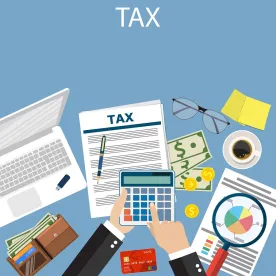On November 26, 2018, the Internal Revenue Service (IRS) issued proposed regulations (Proposed Regulations) pursuant to section 163(j). Public Law 115-97, the Tax Cuts and Jobs Act (TCJA), amended Internal Revenue Code (Code) Section 163 by modifying paragraph (j) to limit the amount of business interest a taxpayer may deduct for taxable years beginning after December 31, 2017. The amendment generally limits the deduction for business interest to the sum of a taxpayer’s business interest income and thirty percent of a taxpayer’s adjusted taxable income (ATI) for the taxable year.
The Code Section 163(j) limit is also increased by a taxpayer’s “floor plan financing interest,” which is certain interest used to finance the acquisition of motor vehicles held for sale or lease. Code Section 163(j)(8) defines ATI as a taxpayer’s taxable income computed without regard to: any item of income, gain, deduction, or loss which is not properly allocable to a trade or business; any business interest or business interest income; any net operating loss deduction under Code Section 172; the amount of any deduction for qualified business income under Code Section 199A; and in the case of taxable years beginning before January 1, 2022, any deduction allowable for depreciation, amortization, or depletion.
The Proposed Regulations address a variety of issues, including the following:
-
Trade or Business. New Code Section 163(j) defines business interest income and expense as amounts that are “properly allocable to a trade or business,” but it does not define trade or business.” The Proposed Regulations define a “trade or business” by reference to Code Section 162 because Code Section 162(a) provides the “most established and developed definition of trade or business.”
-
Interest. The Proposed Regulations define “interest” broadly to include other ordinary income items similar to interest, such as substitute interest payments in securities lending transactions, loan commitment fees, debt issuance costs, Code Section 707(c) guaranteed payments for the use of capital, and factoring income. Proposed Regulation § 1.163(j)-3 introduces rules, including ordering rules, for the relationship between Code Section 163(j) and other provisions affecting interest.
-
S Corporations. Proposed Regulation § 1.163(j)-6 provides guidance regarding the application of the Code Section 163(j) deduction to partnerships and S corporations.
-
CFCs. The Proposed Regulations provide that Code Section 163(j) may apply to limit the deductibility of a controlled foreign corporation’s (CFC’s) business interest expense, thereby potentially limiting a CFC’s deduction of business interest for purposes of computing subpart F income and tested income under Code Section 951A(c)(2)(A).
-
ECI. The Proposed Regulations also provide that Code Section 163(j) applies to foreign corporations and other foreign persons for purposes of computing income effectively connected with a US trade or business.
The Proposed Regulations provide a variety of other rules. Some of the notable provisions include rules applicable to REITs, RICs, tax-exempt entities and consolidated group members. They also provide rules regarding the disallowed business interest expense carryforwards of C corporations and rules regarding elections for excepted trades or businesses and rules for allocating expenses and income between non-excepted and excepted trades or businesses.
Practice Point: With the amendment of Code Section 163(j), the ability of some taxpayers to deduct interest on intercompany debt has been diminished substantially. This may require a taxpayer to reevaluate funding and capital structures, and may necessitate a new strategy.




 />i
/>i
